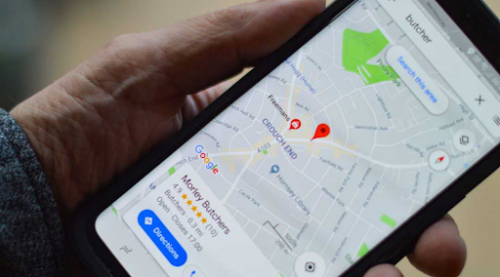An effective marketing strategy always requires adapting to the most current trends. As technology keeps advancing, it is becoming one of the most central tools digital marketers can leverage to reach customers. With an increasing number of people using their smartphones for online activities, using the data from these devices is one of the best ways to amplify your digital marketing efforts.

Photo from Geospatial World
The ability to track mobile devices and, consequently, those devices’ locations in real-time with a high level of accuracy is becoming one of the few technologies that are revolutionizing the digital landscape. By using GPS or IP addresses to extract this kind of data, businesses can now easily identify an electronic device’s geolocation and use it to inform numerous decisions.
As such, geolocation is a significant component of modern digital marketing strategies, helping businesses improve anything from sales numbers to their online visibility. If you’re wondering how you can use geolocation technology in your digital marketing strategy, this article will help you understand how the technology works and the different ways you can apply it.
Accessing Geolocation Data
Geolocation data is generated through cell phone towers, GPS, satellites – or a combination of two or more methods – and it produces a person’s location by specifying latitude and longitude coordinates. To access the data, you can use an API and extract the information either for free or at specified rates.
For example, if you’ve collected many IP addresses from your visitors, you can do a bulk IP lookup from an API to find those users’ geolocation either from their laptop or mobile device. Most APIs update their information regularly and guarantee a high level of accuracy. Moreover, you can access the information at any time.
Applications of Geolocation Technology in Digital Marketing
Geo-Targeted Ads
As businesses compete to win over customers, they need to know who to target and at what time. Thanks to geolocation, they can gain knowledge of where their customers are located and then narrow down the moment they should send them targeted ads, offers, and alerts. Google, for example, offers geo-targeting for marketing campaigns and even lets you target customers based on their zip codes.

Photo from TechRadar
This kind of location-based targeting is especially useful if you own a local store and want to drive traffic by foot since you can target customers in a specific radius or selected locations like malls, tourist districts, or airports. These alerts can be sent via SMS, email, or through an app if you have one for your business. With geofencing, you can even set up a virtual “fence” around your store and send ads to any device that enters the radius.
Content Personalization Based On The User’s Location
Geolocation can be a great marketing tool for offering users a more personalized experience on your website, thus encouraging conversions. With the power of IP-based Geolocation, you can show targeted business offers based on the location of users entering your website. Its powers also extend to showing relevant business hours, translating some basic words into the user’s local language, etc. All of these features contribute to your business’s overall conversion rate, thus helping you increase your sales.
Understanding Your Audience
To design a marketing strategy that produces actual results, you need to first know your target audience to understand their unique needs and preferences. One of the defining factors of your target customer is where they’re located, and geolocation technology is among the best methods for obtaining accurate data in that domain.
Once you obtain demographic information on your customers, you can also infer some socio-economic assumptions. These include their language, race, age, or even income. If you use this information to determine what is the best way to approach your customers and what to communicate, you can customize a digital marketing strategy that will almost certainly improve your results – and make your customers happier.
Location-Specific Keywords
Using the right keywords in your digital marketing campaigns is essential for reaching the right customers, especially for your search engine optimization (SEO). If you know your customers’ location you can use location-related keywords to help them find you more easily and target them based on their most recent location.
Keywords can be especially powerful when consumers are on the move and look for products or services since most of them pull out their mobile devices to find the best options. In fact, about 50% of consumers who perform a local search on their smartphones visit a store on the same day. You can identify consumer intent by going through search queries on search engines and looking at where people are most likely to go for products and services.

Photo from Medium
Final Words
If you want to create an effective marketing campaign in today’s digital marketing landscape, adding geolocation to your digital toolkit is essential. By obtaining geolocation data from APIs, you can start to build an informed and strategic marketing plan that will turn high-potential leads into customers.
By using geolocation technology, you can target customers based on location, understand your audience better, and use keywords that will boost your marketing campaigns. After all, if your customers can’t find you easily, you’re losing a lot of high-potential prospects and hurting your revenue streams.
Interesting Related Article: “Current Digital Marketing Trends“

